Tullian Tchividjian's Blog, page 27
March 23, 2012
Law And Gospel: Part 1
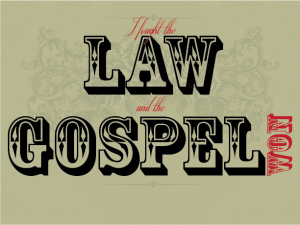 For centuries, Reformational Theologians have rightly noted that in the Bible God speaks two fundamentally different words: law and gospel. The law is God's word of demand, the gospel is God's word of deliverance. The law tells us what to do, the gospel tells us what God has done. So, when we speak of the distinction between law and gospel we are referring to different speech acts–or what linguist John Austin calls "illocutionary stances"–that run throughout the whole Bible. Everything in both the Old Testament and the New Testament is either in the form of an obligatory imperative or a declaratory indicative. "Hence," wrote Martin Luther, "whoever knows well this art of distinguishing between the law and the gospel, him place at the head and call him a doctor of Holy Scripture."
For centuries, Reformational Theologians have rightly noted that in the Bible God speaks two fundamentally different words: law and gospel. The law is God's word of demand, the gospel is God's word of deliverance. The law tells us what to do, the gospel tells us what God has done. So, when we speak of the distinction between law and gospel we are referring to different speech acts–or what linguist John Austin calls "illocutionary stances"–that run throughout the whole Bible. Everything in both the Old Testament and the New Testament is either in the form of an obligatory imperative or a declaratory indicative. "Hence," wrote Martin Luther, "whoever knows well this art of distinguishing between the law and the gospel, him place at the head and call him a doctor of Holy Scripture."
This may seem like a distinction that would fascinate only the theologian or linguist. But, believe it or not, every ounce of confusion regarding justification, sanctification, the human condition, God's grace, how God relates to us, the nature of the Christian life, and so on, is due to our failure to properly distinguish between the law and the gospel.
Ignorance of this distinction between Law and Gospel is one of the principal sources of the abuses which corrupted and still corrupt Christianity. (Theodore Beza)
Virtually the whole of the scriptures and the understanding of the whole of theology–the entire Christian life, even–depends upon the true understanding of the law and the gospel. (Martin Luther)
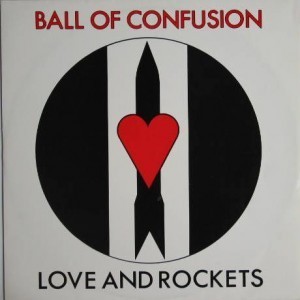 Obviously, both God's law and God's gospel come from God which means both are good. But, both do very different things. Serious life confusion happens when we fail to understand their distinct "job descriptions." We'll wrongly depend on the law to do what only the gospel can do, and vice versa. As Mike Horton says, "Where the law pronounces us all 'guilty before God' (Rom 3:19-20), the gospel announces 'God's gift of righteousness through the redemption that is in Christ Jesus' (vv 21-31). The law is unyielding. It commands, but doesn't give. The law says, "Do!", but the gospel says, "Done!"
Obviously, both God's law and God's gospel come from God which means both are good. But, both do very different things. Serious life confusion happens when we fail to understand their distinct "job descriptions." We'll wrongly depend on the law to do what only the gospel can do, and vice versa. As Mike Horton says, "Where the law pronounces us all 'guilty before God' (Rom 3:19-20), the gospel announces 'God's gift of righteousness through the redemption that is in Christ Jesus' (vv 21-31). The law is unyielding. It commands, but doesn't give. The law says, "Do!", but the gospel says, "Done!"
So, I'm going to be doing a series of posts that will spell out this distinction and hopefully explain why it's so important. If we are ever going to experience the unconditional freedom that Jesus paid so dearly to secure for sinners like me, we must have a clear understanding of this crucial distinction.
To get things started I thought I would post this poetic and helpful hymn from Ralph Erskine where the job descriptions of both the law and the gospel are clearly spelled out and distinguished. Enjoy…
The law supposing I have all,
Does ever for perfection call;
The gospel suits my total want,
And all the law can seek does grant.
The law could promise life to me,
If my obedience perfect be;
But grace does promise life upon
My Lord's obedience alone.
The law says, Do, and life you'll win;
But grace says, Live, for all is done;
The former cannot ease my grief,
The latter yields me full relief.
The law will not abate a mite,
The gospel all the sum will quit;
There God in thret'nings is array'd
But here in promises display'd.
The law excludes not boasting vain,
But rather feeds it to my bane;
But gospel grace allows no boasts,
Save in the King, the Lord of Hosts.
Lo! in the law Jehovah dwells,
But Jesus is conceal'd;
Whereas the gospel's nothing else
But Jesus Christ reveal'd.
March 19, 2012
The Unstoppability Of Romans
I dare you to read Romans:
 The Epistle to the Romans has sat around in the church since the first century like a bomb ticking away the death of religion; and every time it's been picked up, the ear-splitting freedom in it has gone off with a roar.
The Epistle to the Romans has sat around in the church since the first century like a bomb ticking away the death of religion; and every time it's been picked up, the ear-splitting freedom in it has gone off with a roar.
The only sad thing is that the church as an institution has spent most of its time playing bomb squad and trying to defuse it. For your comfort, though, it can't be done. Your freedom remains as close to your life as Jesus and as available to your understanding as the nearest copy. Like Augustine, therefore, tolle lege, take and read: tolle the one, lege the other–and then hold onto your hat. Compared to that explosion, the clap of doom sounds like a cap pistol.
Robert Farrar Capon, Between Noon and Three: Romance, Law, and the Outrage of Grace (pg. 287)
March 15, 2012
Jesus + Nothing = Everything In MODRef
Adapted from my book Jesus + Nothing = Everything, my friends at Modern Reformation Magazine published the following article I wrote for their March/April issue (only excerpted here). If you only subscribe to one theological magazine, I strongly suggest you subscribe to Modern Reformation.
——————————————————————————————————————————————————————-
 The virulence of opposition was more than I could bear. I was undergoing the shelling of my life. I was ready to quit and escape elsewhere. It would be so easy just to walk away and never look back.
The virulence of opposition was more than I could bear. I was undergoing the shelling of my life. I was ready to quit and escape elsewhere. It would be so easy just to walk away and never look back.
All that is what I was going through when, mercifully, vacation time rolled around in June 2009.
On our first morning away, I woke up still saturated with the misery that had been intensifying for so many weeks. I opened up my Bible; in the reading plan I was following, it so happened that the day's passages included the first chapter of Paul's letter to the Colossians.
Desperate for help from God, I read those verses and my eyes were opened to see the incredible sufficiency of Jesus with greater clarity than I'd ever seen before.
In my misery I demanded an explanation from God. After all, I had done what he asked me to do—I had put "my baby" on the altar. And now this? Like Jonah in the belly of the great fish, I was arguing with God and making my case for why He owed me rescue. Worn out, afraid, and angry, I insisted that God give me my old life back. As I was reading Colossians 1 that morning it dawned on me that it wasn't my old life I wanted back as much as I wanted my old idols back and I knew that God loved me too much to give them to me.
You see, I never realized how dependent I'd become on human approval and acceptance until it was taken away. For the first time, I found myself in the uncomfortable position of being deeply disliked and distrusted. I was realizing just how much I'd been relying on the endorsement of others to validate me–to make me feel like I mattered. In and of itself, human approval and acceptance are not bad things. They are, in fact, a gift from God. But I had turned them into idols by making them my primary source of meaning and value and worth and significance, so that without them I was miserable and depressed.
God began rescuing me from my slavery by forcing me to more fully understand exactly what I already had in Christ. I was learning the hard way that the gospel alone can free us from our addiction to being liked–that Jesus measured up for us so that we wouldn't have to live under the enslaving pressure of measuring up for others–including ourselves. His good news met me in my dark place, at my deepest need. Through his liberating word, I was being transformed…freed…refreshed.
The verses that set me free, specifically, were Colossians 1:9-14. In those verses the Apostle Paul says (my summary): You will grow in your understanding of God's will, be filled with spiritual wisdom and understanding, increase in your knowledge of God, be strengthened with God's power which will produce joy filled patience and endurance (v.9-12a) as you come to a greater realization that you've already been qualified, delivered, transferred, redeemed, and forgiven (v.12b-14).
 What those verses liberatingly taught me was that because of Jesus' finished work for me, I already had the justification, approval, acceptance, security, freedom, affection, cleansing, new beginning, righteousness, and rescue I was longing for. I started to see the many-faceted dimensions of the gospel in a more dazzling way. It's almost as if, for me, the gospel changed from something hazy and monochromatic to something richly multicolored, vivid, and vibrant.
What those verses liberatingly taught me was that because of Jesus' finished work for me, I already had the justification, approval, acceptance, security, freedom, affection, cleansing, new beginning, righteousness, and rescue I was longing for. I started to see the many-faceted dimensions of the gospel in a more dazzling way. It's almost as if, for me, the gospel changed from something hazy and monochromatic to something richly multicolored, vivid, and vibrant.
I was realizing in a fresh way the now-power of the gospel–that the gospel doesn't simply rescue us from the past and rescue us for the future. It also rescues us in the present from being enslaved to things like fear, insecurity, anger, self-reliance, bitterness, entitlement, and insignificance.
In the crucible of suffering, the now power of the gospel was liberating me to be okay with not being okay.
I was coming to glorious terms with the fact that because of Christ's finished work for me, I had nothing to prove or protect. I didn't need to pretend anymore that I was strong. I was being set free from the narcissistic impulse to impress people, appease people, measure up for people, or prove myself to people.
Read the whole thing here.
March 12, 2012
My Hope Is Built On Nothing Less
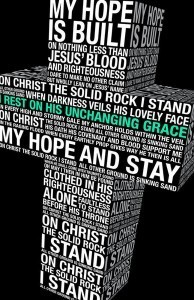 So then, have we nothing to do to obtain righteousness? No, nothing at all! For this righteousness comes by doing nothing, hearing nothing, knowing nothing, but rather in knowing and believing this only–that Christ has gone to the right hand of the Father, not to become our judge, but to become for us our wisdom, our righteousness, our holiness, our salvation!
So then, have we nothing to do to obtain righteousness? No, nothing at all! For this righteousness comes by doing nothing, hearing nothing, knowing nothing, but rather in knowing and believing this only–that Christ has gone to the right hand of the Father, not to become our judge, but to become for us our wisdom, our righteousness, our holiness, our salvation!
Now God sees no sin in us. For in this heavenly righteousness, sin has no place. So now we may certainly think, "Although I still sin, I don't despair, because Christ lives–who is both my righteousness and my eternal life." In that righteousness I have no sin, no fear, no guilty conscience, no fear of death. I am indeed a sinner in this life of mine and in my own righteousness, but I have another life, another righteousness above this life, which is in Christ, the Son of God, who knows no sin or death, but is eternal righteousness and eternal life. For if the truth of being justified by Christ alone (not by our works) is lost, then all Christian truths are lost…On this truth and only on this truth the Church is built and has its being.
Martin Luther, Commentary on Galatians, Preface
March 6, 2012
One-Way Love
 We love the "if/then" proposition: "If" you do this, "then" I will do that; we are inveterate slaves (at worst) or grumpy employees (at best). We militate against the freedom of inheritance and the dependency of sonship. We love living as though "what goes around comes around" conditionality were true. That kind of conditionality makes us feel safe. It's easy to comprehend. It's appropriately formulaic. And best of all, it keeps us in control. We get to keep our ledgers and scorecards. The equation: "If I do this, then you are obligated to do that" makes perfect sense to our grace-shy hearts.
We love the "if/then" proposition: "If" you do this, "then" I will do that; we are inveterate slaves (at worst) or grumpy employees (at best). We militate against the freedom of inheritance and the dependency of sonship. We love living as though "what goes around comes around" conditionality were true. That kind of conditionality makes us feel safe. It's easy to comprehend. It's appropriately formulaic. And best of all, it keeps us in control. We get to keep our ledgers and scorecards. The equation: "If I do this, then you are obligated to do that" makes perfect sense to our grace-shy hearts.
Unconditionality, on the other hand, is incomprehensible. We are deeply conditioned against unconditionality because we've been told in a thousand different ways that accomplishment always precedes acceptance, that achievement always precedes approval. When we hear, "Of course you don't deserve it, but I'm giving it to you anyway," we wonder, "What is this really about? What's the catch?" Internal bells and alarms start to go off, and we begin saying "wait a minute…this sounds too good to be true."
You see, everything in our world demands two-way love. Everything is conditional. If I achieve, we reason, only then will I receive everything I long for: love, approval, significance, respect, and so on. Be good. Bring home the bacon. Keep your act together….Then (and only then) will you have what you want. That's how our world works. But grace isn't from our world. It's otherworldly. It's unconditional. Grace is upside-down, to-do-list wrecking, scandalous and way-too free. It's one-way love.
Like Job's friends, we naturally conclude that good people deserve good stuff and bad people deserve bad stuff. What goes around comes around sums up the mechanism at work in the world we're at home in. The idea that bad people get good stuff is so counter-intuitive as to be utterly implausible. It seems terribly unfair. It offends our sense of justice. Of course, when we talk of justice and good people earning God's blessing, we're forgetting that the Bible is a not a record of the blessed good, but rather the blessed bad. No, that's not a typo. The Bible is the record of the blessed bad. But how can that be? It can be (and is) because a good Someone else earned blessing for the bad. We say that we believe in a God of grace and then live lives completely skeptical of that grace. We've forgotten the one-way love of Calvary.
Even those of us who have tasted the radical saving grace of God find it intuitively difficult not to put conditions on grace. Don't take it too far! Keep it balanced! Tamp it down! we warn. But grace–one-way love–is by its own definition, unbalanced. Grace is a gift, not a wage. It's a gift of love, and lavish love gifts never sit quite right with the bookkeeping, wage-earning, responsible citizen that resides in our own hearts.
Need proof? We need look no farther than Mary's profligate anointing of the Savior in preparation for his death (John 12:3f) for a snapshot of our own hearts. She was both misunderstood and censured by those ever-so-responsible disciples in attendance. The giving of something costly to another simply because one loves, without expecting anything in return, is inequity in action. We recoil at it. What could ever be balanced about something as lopsided as one-way love? One-way love has no qualifiers, no conditions, no buts. It's unconditional, unpredictable, and undomesticated. You can't put brakes on it because it's not yours to measure out or control.
Grace makes us nervous, it scares us to death because it strips us of our beloved "you owe me" religion. It snatches control out of our hands. It tears up the timecard we were counting on to be assured of that nice, big paycheck on Friday. It forces us to rely on the naked goodness of Another and that is simply terrifying. However much we may hate having to get up and go to the salt mines everyday, we distrust the thought of completely resting in the promised, unmanageable generosity of God even more.
By nature we're all perpetually suspicious of promises that seem too good to be true. We're wary of grace. We wonder about the ulterior motives of the excessively generous. What's the catch? What's in it for him? So we try to domesticate the message of one-way love–after all, who could trust in or believe something so radically unbelievable?
Contrary to what we conclude naturally, the gospel is not too good to be true. It is true! It's the truest truth in the entire universe. No strings attached! No fine print to read. No buts. No conditions. No qualifications. No footnotes. And especially, no need for balance.
 If you're a Christian, you have been given the most extravagant gift ever: the completely sufficient imputed righteousness of Christ. That means that his perfect timecard has your name on it and every single penny that was owed him for a life of devoted labor in your salt mine has been deposited directly into your account. It also means that you've been completely forgiven for every single time you lazed out, came in late, left early, cut corners, dawdled on FaceBook, stole paperclips, despised the boss, backstabbed your co-worker, and generally acted like an apathetic, hateful slave. You're completely, totally, unashamedly forgiven. You've been forgiven because Jesus took your record and applied it to himself, receiving every lash of the wrath you had earned in your place and transferring his record to you.
If you're a Christian, you have been given the most extravagant gift ever: the completely sufficient imputed righteousness of Christ. That means that his perfect timecard has your name on it and every single penny that was owed him for a life of devoted labor in your salt mine has been deposited directly into your account. It also means that you've been completely forgiven for every single time you lazed out, came in late, left early, cut corners, dawdled on FaceBook, stole paperclips, despised the boss, backstabbed your co-worker, and generally acted like an apathetic, hateful slave. You're completely, totally, unashamedly forgiven. You've been forgiven because Jesus took your record and applied it to himself, receiving every lash of the wrath you had earned in your place and transferring his record to you.
Won't you suspend your incredulity and conditionality for just one moment and believe? Won't you stop yourself from saying, "Yes, but…" for just one hour? Sure, it seems dangerous, but doesn't that ride look like fun? Haven't you grown tired of the taste of that gritty salt? How many times do you have to say, "the harder I work, the behind-er I get" before you give up and believe?
Who deserves this kind of lavish one-way love? No one. No one deserves it—that's why God calls it grace: undeserved favor. But if you believe it, your pardon is already full and final. In Christ, you're forgiven. You're clean. Now. It is finished. And as scary as it may seem, wading into this ocean of grace will be the most freeing and blissful dive you'll ever take.
March 2, 2012
More, Not Less
"There is therefore now no condemnation for those who are in Christ Jesus." (Romans 8:1)
However deep and wide you think the freedom offered to sinners in the gospel is–it's more, not less. As my friend Dane Ortlund says, "It's time to blow aside the hazy cloud of condemnation that hangs over us throughout the day with the strong wind of gospel grace."
Robert Capon expounds on this:
Saint Paul has not said to you, "Think how it would be if there were no condemnation"; he has said, "There is therefore now none." He has made an unconditional statement, not a conditional one–a flat assertion, not a parabolic one. He has not said, "God has done this and that and the other thing; and if by dint of imagination you can manage to pull it all together, you may be able to experience a little solace in the prison of your days." No. He has simply said, "You are free. Your services are no longer required. The salt mine has been closed. You have fallen under the ultimate statute of limitation. You are out from under everything: Shame, Guilt, Blame. It all rolls off your back like rain off a tombstone."
It is essential that you see this clearly. The Apostle is saying that you and I have been sprung. Right now; not next week or at the end of the world. And unconditionally, with no probation officer to report to. But that means that we have finally come face to face with the one question we have scrupulously ducked every time it got within a mile of us: You are free. What do you plan to do? One of the problems with any authentic pronouncement of the gospel is that it introduces us to freedom.
So, what are you going to do now that you don't have to do anything? The secret of worship is that it's only when you deeply grapple with the pride-smashing fact that you can't do anything for Jesus, you begin wanting to do everything for Jesus. True discipleship happens when you come to terms with the fact that you are so unconditionally loved, forgiven, pardoned, and free that you say "yes" to whatever God wants.
February 27, 2012
Reading The Stories And Missing The Story
 It's possible to read the Bible, study the Bible, and memorize large portions of the Bible, while missing the whole point of the Bible. It's entirely possible, in other words, to read the stories and miss the Story.
It's possible to read the Bible, study the Bible, and memorize large portions of the Bible, while missing the whole point of the Bible. It's entirely possible, in other words, to read the stories and miss the Story.
This is what happened to the two disciples walking on the road to Emmaus in Luke 24.
They were dejected, down, and despairing because the one they had put all their hope in had just been executed. They heard "rumors" that he was missing from the grave but, as far as they knew, these were unsubstantiated claims. As they were walking and talking Jesus came up and walked with them "but they were kept from recognizing him." Jesus asked them, "What are you two talking about? Why are you so sad?" Looking strangely at this stranger, they asked, "Where have you been? Don't you know what's just happened? It's the talk of the town." They went on to explain that the one they were banking on to restore Israel to it's national and political prominence had just been put to death. Their hopes had been dashed, their dreams shattered.
Jesus looked at them and said, "Do you not read your Bibles?" And beginning with Moses and all the Prophets, he explained to them what was said in all the Scriptures concerning himself (Luke 24:27). Jesus showed them that if they had understood what the Old Testament was really about, they wouldn't have been so shocked by the things that had happened. They knew their Bible's, but they missed Jesus.
Luke 24:21 tells us what they thought the Bible was about. They read it as if it was fundamentally about their glory–Jesus was coming to restore their political prominence, position, and power.
We make the same mistake.
As I mentioned in my last post, we often read the Bible as if it were fundamentally about us: our improvement, our life, our triumph, our victory. And as a result we treat it like a book of timeless principles that will give us our best life now if we simply apply those principles. We treat it, in other words, like it's a heaven-sent self-help manual. But by looking at the Bible as if it were fundamentally about us, we totally miss Jesus–like the two on the road to Emmaus. In fact, unless we go to the Bible to see Jesus and his work for us, even our devout Bible reading can become fuel for our own narcissistic self-improvement plans.
So, if we read the Bible asking first, "What would Jesus do?" instead of asking "What has Jesus done" we'll miss the good news that alone can set us free.
As I've said before, the overwhelming focus of the Bible is not the work of the redeemed but the work of the Redeemer. The Bible is not first a recipe book for Christian living, but a revelation book of Christ who is the answer to our unchristian living. Scripture, in other words, is the portrait of Jesus. It's a picture of who he is and what he's done. The Bible tells one story and points to one figure: it tells the story of how God rescues a broken world and points to Christ who accomplishes this. The OT predicts God's rescuer; the NT presents God's rescuer. In all of its pages and throughout all of its stories, the Word of the Lord reveals the Lord of the Word. The plot line of the Bible, in other words, is Jesus-centered. He is the Hero of the Story.
 Even though it's a children's Bible, The Jesus Storybook Bible is, in my opinion, one of the best resources available to help both children and adults see the Jesus-centered story line of the Bible.
Even though it's a children's Bible, The Jesus Storybook Bible is, in my opinion, one of the best resources available to help both children and adults see the Jesus-centered story line of the Bible.
In the Introduction of that book, author Sally Lloyd-Jones rightly explains what the Bible is not before she beautifully explains what the Bible is. She writes:
Now, some people think the Bible is a book of rules, telling you what you should and shouldn't do. The Bible certainly does have some rules in it. They show you how life works best. But the Bible isn't mainly about you and what you should be doing. It's about God and what he has done.
Other people think the Bible is a book of heroes, showing you people you should copy. The Bible does have some heroes in it, but (as you'll soon find out) most of the people in the Bible aren't heroes at all. They make some big mistakes (sometimes on purpose), they get afraid and run away. At times, they're downright mean.
No, the Bible isn't a book of rules, or a book of heroes. The Bible is most of all a Story. It's an adventure story about a young Hero who comes from a far country to win back his lost treasure. It's a love story about a brave Prince who leaves his palace, his throne–everything–to rescue the ones he loves. It's like the most wonderful of fairy tales that has come true in real life!
You see, the best thing about this Story is-it's true.
There are lots of stories in the Bible, but all the stories are telling one Big Story. The Story of how God loves his children and comes to rescue them.
It takes the whole Bible to tell this Story. And at the center of the Story, there is a baby. Every story in the Bible whispers his name. He is like the missing piece in the puzzle-the piece that makes all the other pieces fit together, and suddenly you can see a beautiful picture.
For an amazing article by Sally on the need to teach children that the Bible is not about them, go here.
February 20, 2012
What Does It Mean To Be Biblically Balanced?
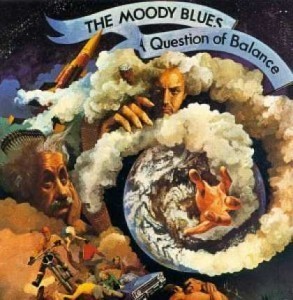 I increasingly hear people talking about the need to be "Biblically balanced" and I think I'm starting to understand what they mean.
I increasingly hear people talking about the need to be "Biblically balanced" and I think I'm starting to understand what they mean.
As I talk to people who speak about the need for our theology and preaching to be "balanced", they mean that we need to spend the same amount of time talking about everything the Bible talks about.
So, for example, since the Bible talks about what God in Christ has done and also what we ought to do in light of what Christ has done, to be balanced we need to give both themes equal airtime. Since the Bible talks about Jesus and it talks about us, to be balanced we need to spend the same amount of time talking about both. The list could go on: since the Bible talks about x and y, to be balanced we need to talk about x and y the same amount.
But, this is NOT the balance of the Bible. While the Bible talks about a lot of things it does not give all of its themes equal airtime.
The overwhelmingly dominate message of the Bible is that God loves (and in Jesus) justifies sinners. There are tons of ways the Bible says this: the whore is made a bride, the dead are raised, the unrighteous are declared righteous, slaves are made sons, the blind see, the sick are healed, the unclean are made pure, the guilty are forgiven, sinners are saved, and so on. Obviously, no Christian denies that the Bible says more than this. But the work of Christ on behalf of sinners is clearly the emphasis of Scripture from beginning to end. What we do in light of what Jesus has done is important. But it's not more important than (or even equally important as) what Jesus has done for us.
For I delivered to you as of first importance what I also received: that Christ died for our sins in accordance with the Scriptures, that he was buried, that he was raised on the third day in accordance with the Scriptures…(1 Corinthians 15:3-4).
The emphasis of the Bible is on the work of the Redeemer, not on the work of the redeemed. As important as how we live is, the spotlight of Scripture is on Christ and what he's done, not the Christian and what we do. As Tim Keller has said, "The Bible is not fundamentally about us. It's fundamentally about Jesus."
My point is simply this: to be "Biblically balanced" is NOT to allot equal airtime to every Biblical theme. To be Biblically balanced is to let our theology and preaching be proportioned by the Bible's radically disproportionate focus on God's saving love for sinners seen and accomplished in the crucified and risen Christ.
February 16, 2012
Dying To Live
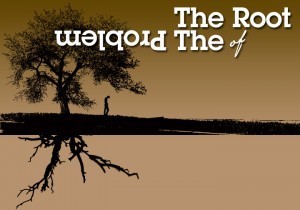 We Christians have a remarkable tendency to focus almost exclusively on the fruit of the problem. We do this as parents with our children, pastors with our parishioners, husbands with wives and wives with husbands. We do this with ourselves. Others do it with us. Like Job's "friend", Eliaphaz, we often draw simplistic conclusions about life, ourselves, and others based exclusively on what we see (Job 4:8).
We Christians have a remarkable tendency to focus almost exclusively on the fruit of the problem. We do this as parents with our children, pastors with our parishioners, husbands with wives and wives with husbands. We do this with ourselves. Others do it with us. Like Job's "friend", Eliaphaz, we often draw simplistic conclusions about life, ourselves, and others based exclusively on what we see (Job 4:8).
The gospel, on the other hand, always addresses the root of the problem. And the root of the problem is not bad behavior. Bad behavior is the fruit of something deeper. Our chief problem, as Jesus made clear, is "not what goes into a man", but the defiled heart–or root (Mark 7:15).
Harold Senkbeil rightly identifies our real enemy: death. Sins are the fruit of a much deeper problem, a problem that only God can solve. Death is the root of the problem.
"This looks good", she thought to herself. Such shiny fruit; it fairly cried out to be eaten, to be enjoyed. And what a broadening experience such enjoyment would be-the knowledge of good and evil, the Mighty One had said. How could He want less than the very best for His own?
"My husband and I will be like God Himself," she reflected. "Now, could that be so bad?"
The serpent made sense: it would be much better to know both good and evil than to know only good.
"Here, have some." She handed the juicy pulp to her husband.
"This is good stuff. By the way, Adam, do you know what God meant by that word-I think it was 'die.'"
All sinful behavior-even in Christians-can be traced back to the death that happened in Eden. To address behavior without addressing death is to perpetuate death. The Pharisees were masters of this and Jesus called them "white-washed tombs." Many of us Christians are guilty of making this same mistake. We tend to think of the gospel as God's program to make bad people good, not dead people live. The fact is, Jesus came first to effect a mortal resurrection, not a moral reformation-as his own death and resurrection demonstrate.
Most people think that the human dilemma is that our lives are out of adjustment; we don't meet God's expectations. Salvation then becomes a matter of rearranging our priorities and adjusting our life-style to correspond with God's will. In its crassest form, this error leads people to think they earn their own salvation. More often in today's evangelical world, the error has a more subtle disguise: armed with forgiveness through Jesus, people are urged to practice the techniques and principles Christ gave to bring their life-style back into line.
It is certainly true that sinful lives are out of adjustment. We are all in need of the Spirit's sanctifying power. But that comes only after our real problem is solved. Sins are just the symptom; our real dilemma is death.
God warned Adam and Eve that the knowledge of evil came with a high price tag: ". . . when you eat of (the tree of the knowledge of good and evil) you will surely die" (Gen. 2:17). Our first parents wanted to be like God and were willing to pay the price. And we are still paying the price: "the wages of sin is death . . ." (Rom. 6:23); ". . . in Adam all die" (1 Cor. 15:22); ". . . You were dead in your transgressions and sins" (Eph. 2:1).
The real problem we all face is death. Physical death, to be sure. But ultimately and most horribly, spiritual death-being cut off from God forever. And everyone must die. You can either die alone or die in Jesus.
In his death Jesus Christ swallowed up our death, and rose again triumphantly to take all of the teeth out of the grave. In the promise of the resurrection, death loses its power. When we die with Jesus, we really live! (Senkbeil)
 Sanctification consists of the daily realization that in Christ we have died and in Christ we have been raised. Life change happens as the heart daily grasps death and life. Daily reformation is the fruit of daily resurrection (Romans 6:1-11). To get it the other way around (which we always do by default) is to miss the power and point of the gospel. In his book God in the Dock, C.S. Lewis makes the obvious point that "You can't get second things by putting them first; you can get second things only by putting first things first." Behavior (good or bad) is a second thing.
Sanctification consists of the daily realization that in Christ we have died and in Christ we have been raised. Life change happens as the heart daily grasps death and life. Daily reformation is the fruit of daily resurrection (Romans 6:1-11). To get it the other way around (which we always do by default) is to miss the power and point of the gospel. In his book God in the Dock, C.S. Lewis makes the obvious point that "You can't get second things by putting them first; you can get second things only by putting first things first." Behavior (good or bad) is a second thing.
"Life is a web of trials and temptations", says Robert Capon, "but only one of them can ever be fatal-the temptation to think it is by further, better, and more aggressive living that we can have life." The truth is, that you can't live your way to life–you can only "die [your] way there, lose [your] way there…For Jesus came to raise the dead. He did not come to reward the rewardable, improve the improvable, or correct the correctable; he came simply to be the resurrection and the life of those who will take their stand on a death he can use instead of on a life he cannot."
Moral renovation, in other words, is to refocus our eyes away from ourselves to that Man's obedience, to that Man's cross, to that Man's blood-to that Man's death and resurrection!
Learning daily to love the glorious exchange (our sin for his righteousness), to lean on its finishedness, and to live under its banner is what it means to be morally reformed!
February 13, 2012
The Four Holy Gospels At LIBERATE 2012
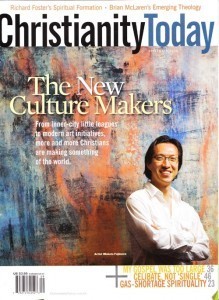 The inaugural LIBERATE Conference is 10 days away. I hope you're coming. If you weren't planning to, it's not too late. Register today.
The inaugural LIBERATE Conference is 10 days away. I hope you're coming. If you weren't planning to, it's not too late. Register today.
The message of LIBERATE is clear: the Gospel of grace is indeed good news. Because everything we need we already have in the person and work of Christ, we are truly free.
So, from February 23-25 at Coral Ridge Presbyterian Church in Ft. Lauderdale, Florida we will explore the theological and practical depths of God's scandalous grace in the gospel. We want this yearly conference to become a catalytic platform for serious thinking about "a more radical gospel."
In addition to our many exhibitors and speakers (Michael Horton, Paul Tripp, Elyse Fitzpatrick, Scotty Smith, Darrin Patrick, David Zahl, Rod Rosenbladt, Doug Sauder, and myself), Scott Anderson (Executive Director of Desiring God) will be emceeing, Mark Miller (Director of Music at Coral Ridge Presbyterian Church) will be leading us in music, The White Horse Inn will be doing a live taping, and we will have a huge and well-resourced bookstore.
But that's not all…
I am super excited to announce a last minute addition.
 For over twenty-five years New York-based artist Makoto Fujimura has fleshed out the message of freedom through art. He is one of the most prominent and influential Christians in culture, exhibiting his abstract paintings in museums and galleries throughout the world. As a Presidential appointee to the National Council on the Arts (2003-2009), he served as an advisor on public policy on art and culture. And for many years he has been deeply involved at Redeemer Presbyterian Church in Manhattan.
For over twenty-five years New York-based artist Makoto Fujimura has fleshed out the message of freedom through art. He is one of the most prominent and influential Christians in culture, exhibiting his abstract paintings in museums and galleries throughout the world. As a Presidential appointee to the National Council on the Arts (2003-2009), he served as an advisor on public policy on art and culture. And for many years he has been deeply involved at Redeemer Presbyterian Church in Manhattan.
Last year Crossway Publishing celebrating the 400th anniversary of the King James Version of the Bible with the release of The Four Holy Gospels, a deluxe edition which features Fujimura's work.
I am pleased to announce that Fujimura, in support of LIBERATE, has provided us with a selection of original pages from The Four Holy Gospels to be on view during the conference. I can't imagine a better example of Gospel freedom and creativity than these works by this artist.
Thank you, Mako.
One more reason to join us for LIBERATE.
Whoever you are, we want you here. We've intentionally made it as affordable as we can so that finances won't be an obstacle. We don't want anything getting in the way of you being able to come. Plus, there's no place warmer and sunnier during February than Fort Lauderdale!
See you soon…
Tullian Tchividjian's Blog
- Tullian Tchividjian's profile
- 142 followers



